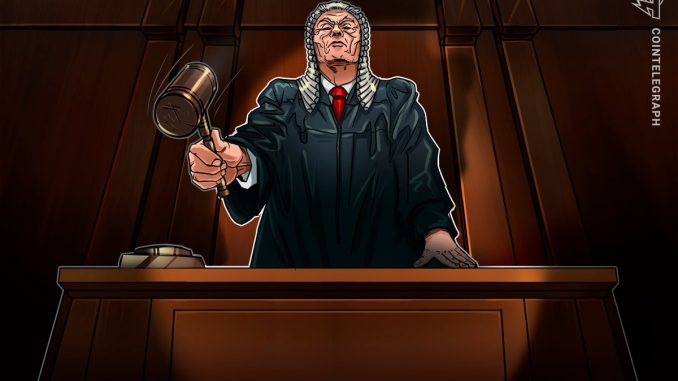
Nonfungible token (NFT) artist Ryder Ripps’ most recent attempt to dismiss the Bored Ape Yacht Club-related lawsuit against him appears to have fallen on skeptical ears.
In an Oct. 17 hearing, three judges from the United States Court of Appeals for the Ninth District appeared largely unpersuaded by the arguments from the attorney representing Ripps and Jeremy Cahen (known by the pseudonym “Pauly” on X), who argued the case should have been dismissed on the grounds of free speech.
Ripps and Cahen’s lawyer, WilmerHale partner Thomas Sprankling, argued the knock-off Bored Ape NFTs were sold and distributed in a way that protested the supposedly anti-semitic imagery hidden within the Yuga Labs-created collection.
He repeatedly positioned Ripps and Cahen as selling the NFTs as an avant-garde exercise that pushes the boundaries of speech and claimed Yuga’s suit should have been thrown out under a California law that aims to stop intimidatory lawsuits, known as strategic lawsuits against public participation, or SLAPP.
Sprankling told the judges that the anti-SLAPP statute is designed as a “prophylactic” — meaning that it is supposed to go “a little beyond the bounds of the First Amendment to make sure you’re not threatening people with chilling speech in litigation, as is the case that happened here.”
In their anti-SLAPP motion, the pair asserted that Yuga Labs only initiated the lawsuit against them to silence their “protest” art and drown them in legal costs.
However, the judges seemed interested only in the secondary sales of the NFTs themselves, essentially dismissing all arguments that hinged on any artistic criticism.
“He was selling the same images, on the same marketplaces, on virtually indistinguishable NFT identifiers,” said Judge Anthony Johnstone in response to Sprankling’s argument.
“I’m still not seeing it,” added Judge Morgan Christen.
Related: NFT market slump shows it’s maturing toward ‘genuine utility,’ execs argue
Yuga Labs first filed a complaint against Ripps and Cahen in July 2022, alleging the pair made millions of dollars while engaging in trademark infringement, false advertising and unfair competition following the release of a derivative NFT collection called RR/BAYC.
On April 21, a California District Court found that Ripps and Cahen had infringed Yuga Lab’s trademarks with their RR/BAYC NFT collection.
While Californian District Court Judge John Walter has already held a bench trial to assess the scope of damages to be paid to Yuga Labs, he has yet to announce the case’s conclusion.
Magazine: NFT Collector: William Mapan’s Distance sells out, NFT float in Macy’s Parade, Nouns DAO forks




Be the first to comment